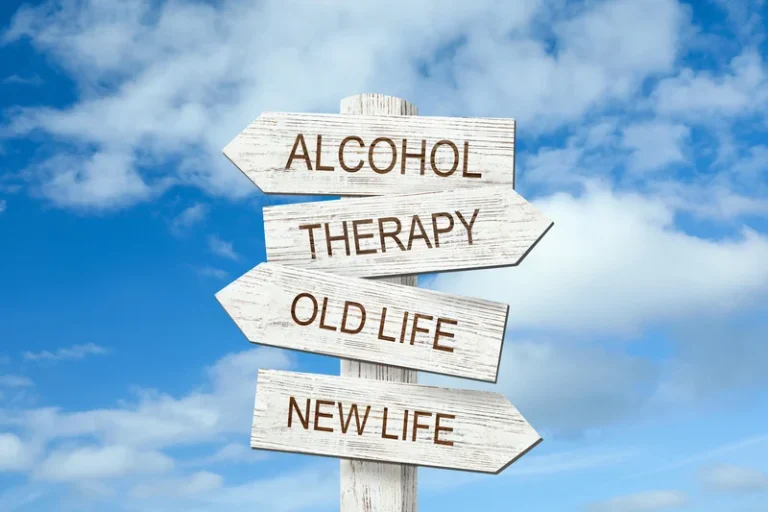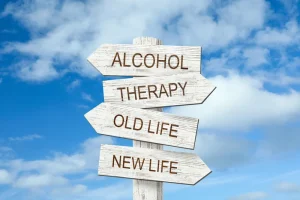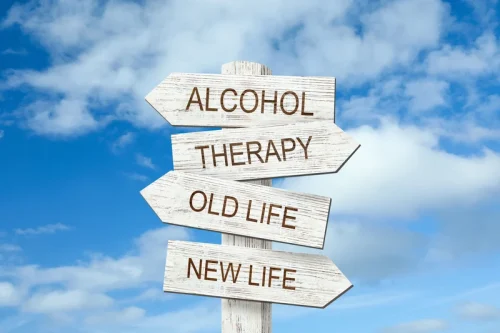Alcohol and diabetes: Effects, blood sugar levels, and guidelines

Alcohol reduces blood levels of testosterone and may thereby further exacerbate the existing hormonal deficit. Clinical experience indicates, however, that a testosterone deficit rarely is the sole reason for impotence in =https://ecosoberhouse.com/ diabetic men, because treatment with testosterone rarely restores potency in those men. Thus, both neuropathy and vascular disease likely play significant roles in impotence in diabetic men.
- That effect has been observed in both type 1 and type 2 diabetics as well as in nondiabetics (Arky and Freinkel 1964).
- This strain difference has the potential to provide mechanistic insight under in vivo conditions by allowing for the identification of differentially regulated signal transduction pathways central to glucose homeostasis.
- For studies that reported ranges of alcohol consumption for the categories, the midpoint was used.
- Moreover, a similar alcohol-induced reduction was observed when alcohol was administered in vivo and islet insulin secretion was assessed in vitro 104.
- People with diabetes should be particularly cautious when it comes to drinking alcohol because alcohol can make some of the complications of diabetes worse.
Conditions
- Attending physicians are obliged to report all newly diagnosed TB cases to nearby public health centers and register them in the RID program.
- Data from the standard glucose tolerance test provides information on glucose tolerance, but is a poor predictor of insulin action/resistance especially in the absence of accompanying insulin levels 114.
- The effects of insulin and other blood glucose-lowering medications that work by increasing your body’s release of insulin, such as sulfonylureas and glinides, can also increase the risk of late-onset hypoglycemia, says endocrinologist Alan Graber.
- This article discusses how alcohol can impact diabetes and related conditions and offers tips for safe drinking.
- The risk of hypoglycemia is why experts advise people with diabetes not to drink alcohol if their blood sugar is already low.
First of all, alcohol impacts the liver in doing its job of regulating blood sugar. Alcohol can also interact with some medications that are prescribed to people with diabetes. Even if you only rarely drink alcohol, talk with your healthcare provider about it so that he or she knows which medications are best for you.
Study outcome: TB diagnosis

Two of the hormones (i.e., insulin and glucagon) are potent regulators of blood sugar levels. Both hormones are produced in areas drug addiction of the pancreas called the Islets of Langerhans, which, quite literally, are “islands” of hormone-producing cells in a “sea” of digestive enzyme-producing cells. Among other cell types, the Islets of Langerhans include an inner core of insulin-producing beta cells surrounded by a layer of glucagon-producing alpha cells. It is very common for blood sugar levels to spike shortly after drinking due to sugary mixers, and then dramatically drop low hours later when you are likely sleeping. This is why it’s especially important for your friends and family to know the risks of drinking alcohol with diabetes and the signs of low blood sugar.
Drinking alcohol can lead to serious low blood sugar reactions.

A couple of recent research studies have shown that adults with diabetes might see a slight improvement in their insulin sensitivity with moderate alcohol consumption. This means the body may make more efficient use of the insulin the pancreas continues to make. If you are managing your diabetes with diet and exercise alone, drinking alcohol can stil increase your risk of low blood sugars. And if you take insulin or types of diabetes pills that stimulate insulin production, drinking alcohol can lead to even more serious low blood sugar reactions. The ADA does not forbid a person with diabetes from consuming alcohol, but they do not advise it either. If someone with diabetes chooses to drink alcohol, the ADA recommends limiting consumption to a moderate intake.
In South Korea, high-risk alcohol consumption, defined as more than seven drinks per session for men and more than five for women, at least twice per week, was observed in 22.8% of adults (31.1% of men and 4.2% of women) with DM in 2020 13. However, that study focused on only lifestyle changes in alcohol consumption and requires further investigation on the aspects of valid alcohol definition and quantitative analysis of alcohol intake 14. Therefore, we investigated the association between alcohol consumption and TB development in individuals with DM using a national health examination questionnaire.
A person should avoid sweetened liquor or alcohol mixed with sodas or punch. This conversation starts with simply being honest about the amount of alcohol you drink daily. With your support, the American Diabetes Association® can continue our lifesaving work to make breakthroughs in research and provide people with the resources they need to fight diabetes. Liquid sugars are quickly absorbed diabetes and alcohol by the body, so those carbs won’t be much help in preventing or treating a low that may occur hours after you drink. Food, on the other hand, is digested gradually, so it provides better protection against lows.
- Thus, both neuropathy and vascular disease likely play significant roles in impotence in diabetic men.
- Hypertriglyceridemia is an important risk factor for cardiovascular diseases.
- Yet, many people assume that alcoholic drinks are loaded with carbs, not realizing that wine and spirits are practically carbohydrate free—with only a trace of carbohydrate in spirits and roughly four grams of carbs in a five-ounce glass of wine.
- People who frequently consume a lot of alcohol can wipe out their energy storage in a few hours.
- The finding of heterogeneity indicates that there are additional factors such as pattern of consumption that should be considered in future research.
- These findings are divergent to that observed in other catabolic conditions where glucose uptake is enhanced in macrophage-rich tissues 75.
Talk with your doctor before drinking alcohol to make sure alcohol won’t reduce the effectiveness of your medication. It’s also best to have a meal or snack that includes carbohydrates when you are drinking alcohol. It’s not fully understood why drinking can increase your risk of getting diabetes, but it is known that alcohol can reduce the function of different organs including your liver and pancreas.

If you have a history of depression or depressive symptoms, drinking alcohol can worsen your condition. There are many different types of drugs that can work in different ways to lower your blood glucose (blood sugar). Too much drinking, on the other hand (more than three drinks daily), can lead to higher blood glucose and A1C. Scatter plot of the RR estimates of type 2 diabetes reported in the 20 studies included in the analyses.

Risk of TB development according to alcohol consumption stratified by age and current smoking status
In addition, certain non-diabetic medications do not mix well with alcohol. A 2015 meta-analysis reviewed 38 cohort studies to determine whether alcohol is a risk factor for diabetes. It found moderate consumption appeared to offer some protection against the condition in women and Asian populations, while heavy consumption raised the risk in almost all groups. If you’re having frequent trouble managing your blood sugar levels, you should consider if it’s safe for you to drink alcohol. Your liver is releasing this stored glucose every day and night to give your brain and body the fuel it needs to function. The same stored glucose contributes to high blood sugars levels during the “dawn phenomenon” in the morning, too.

Leave a Reply
You must be logged in to post a comment.